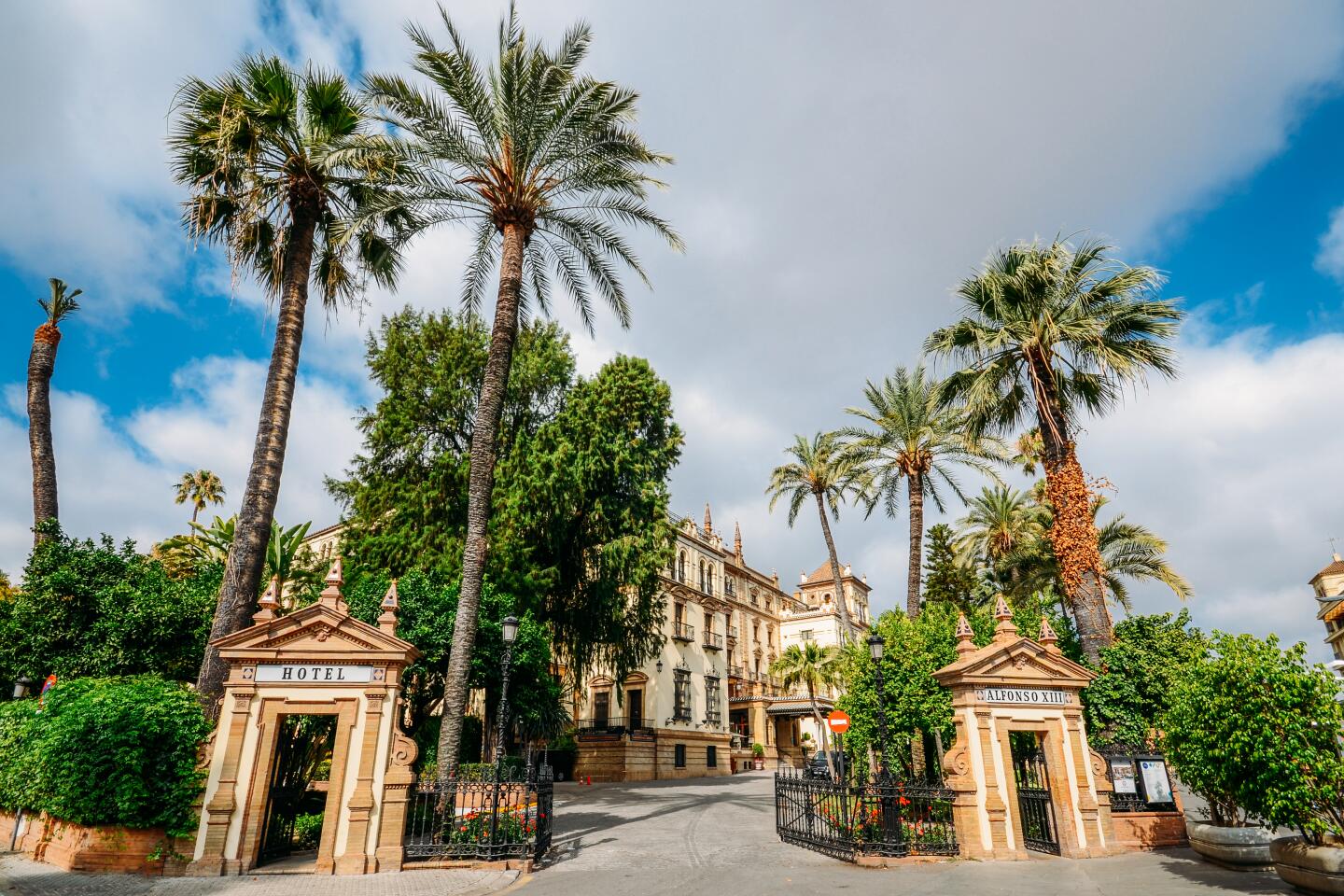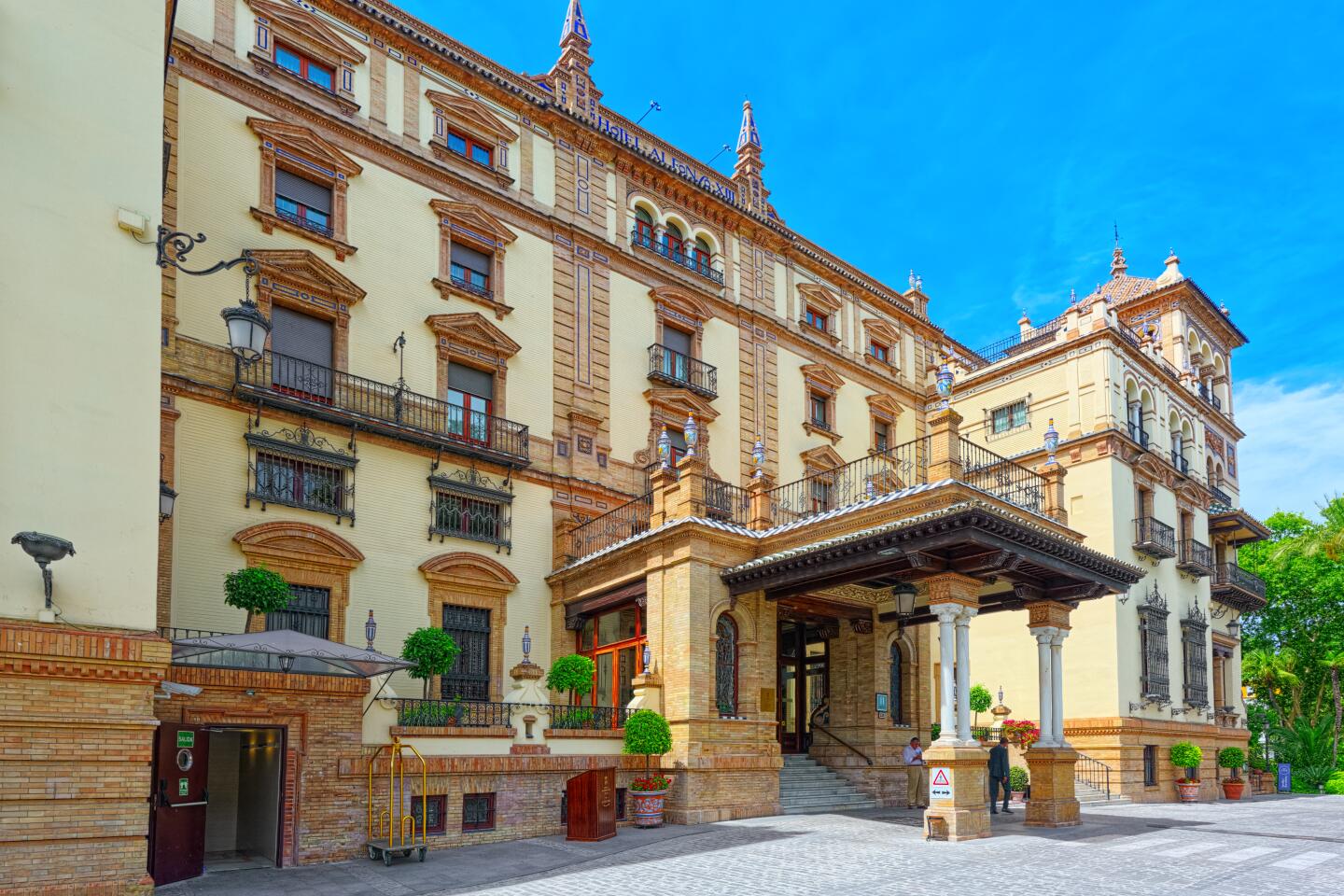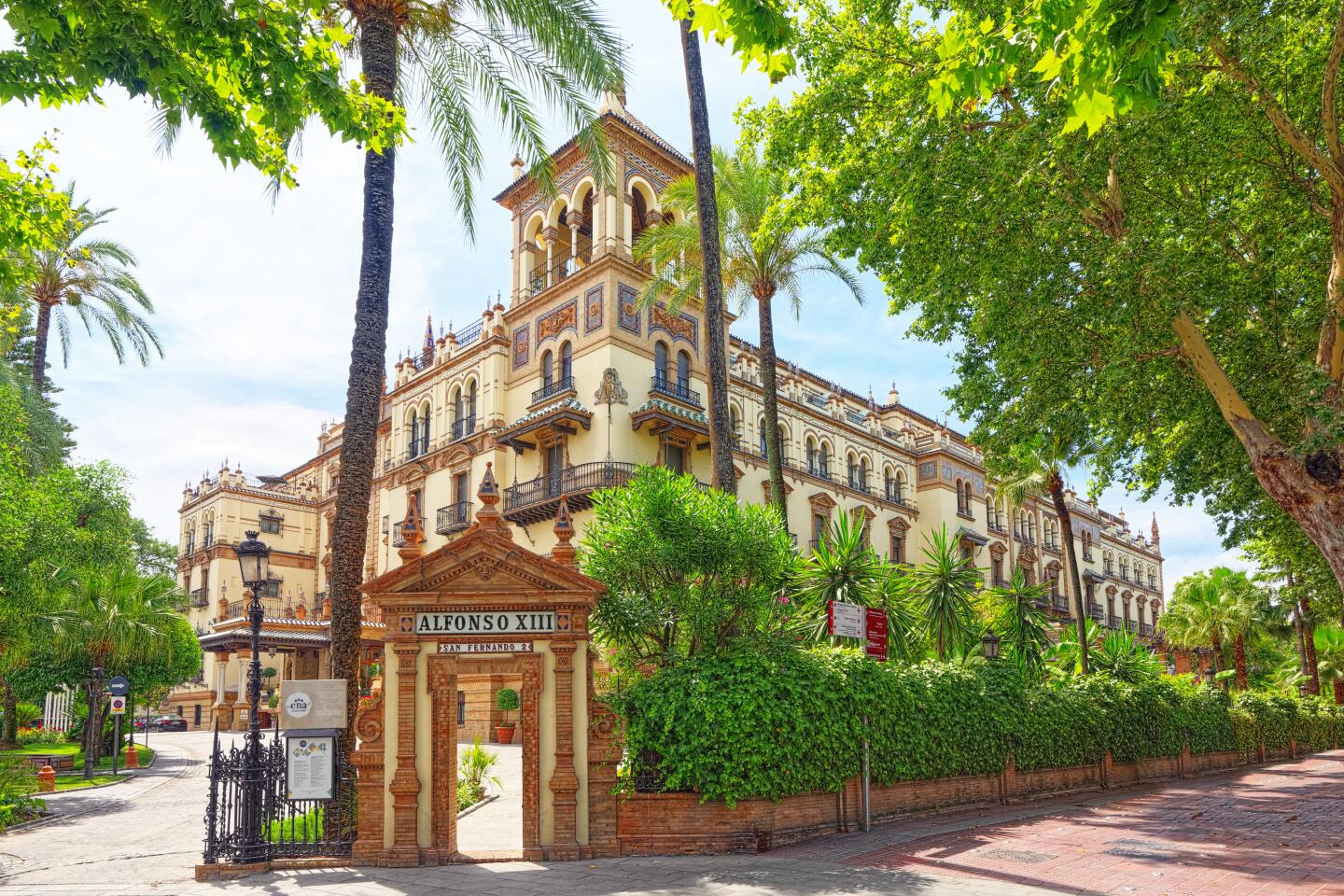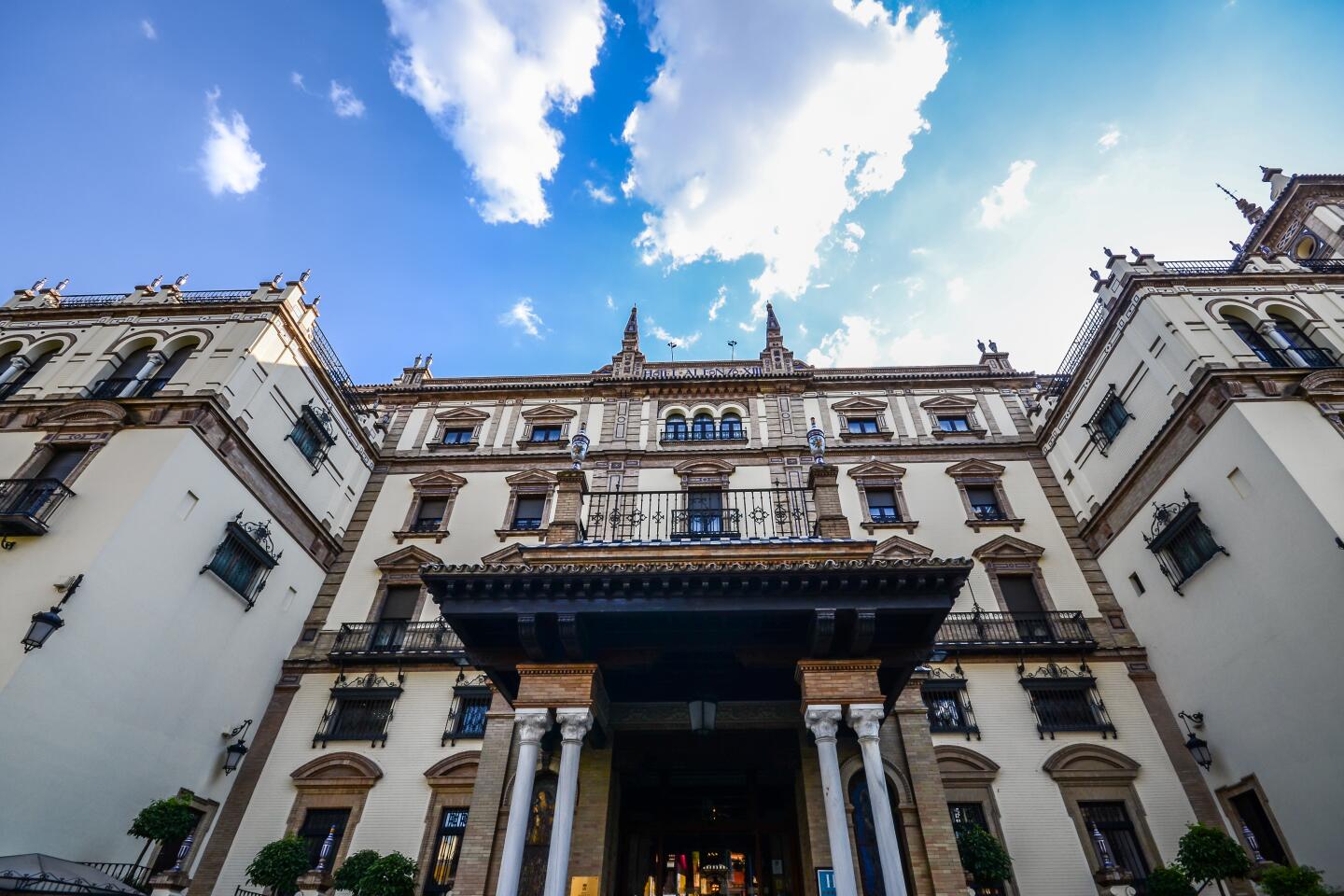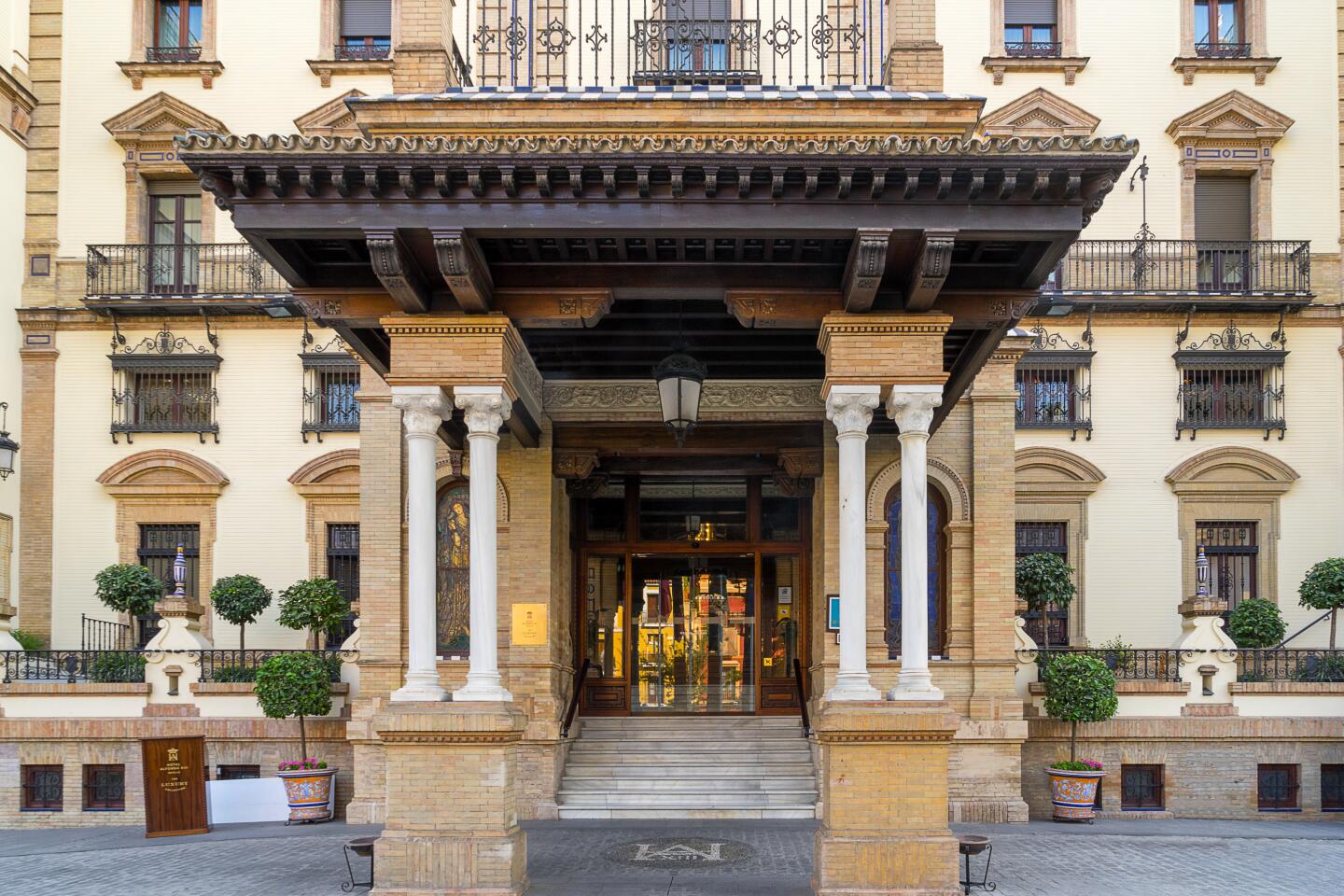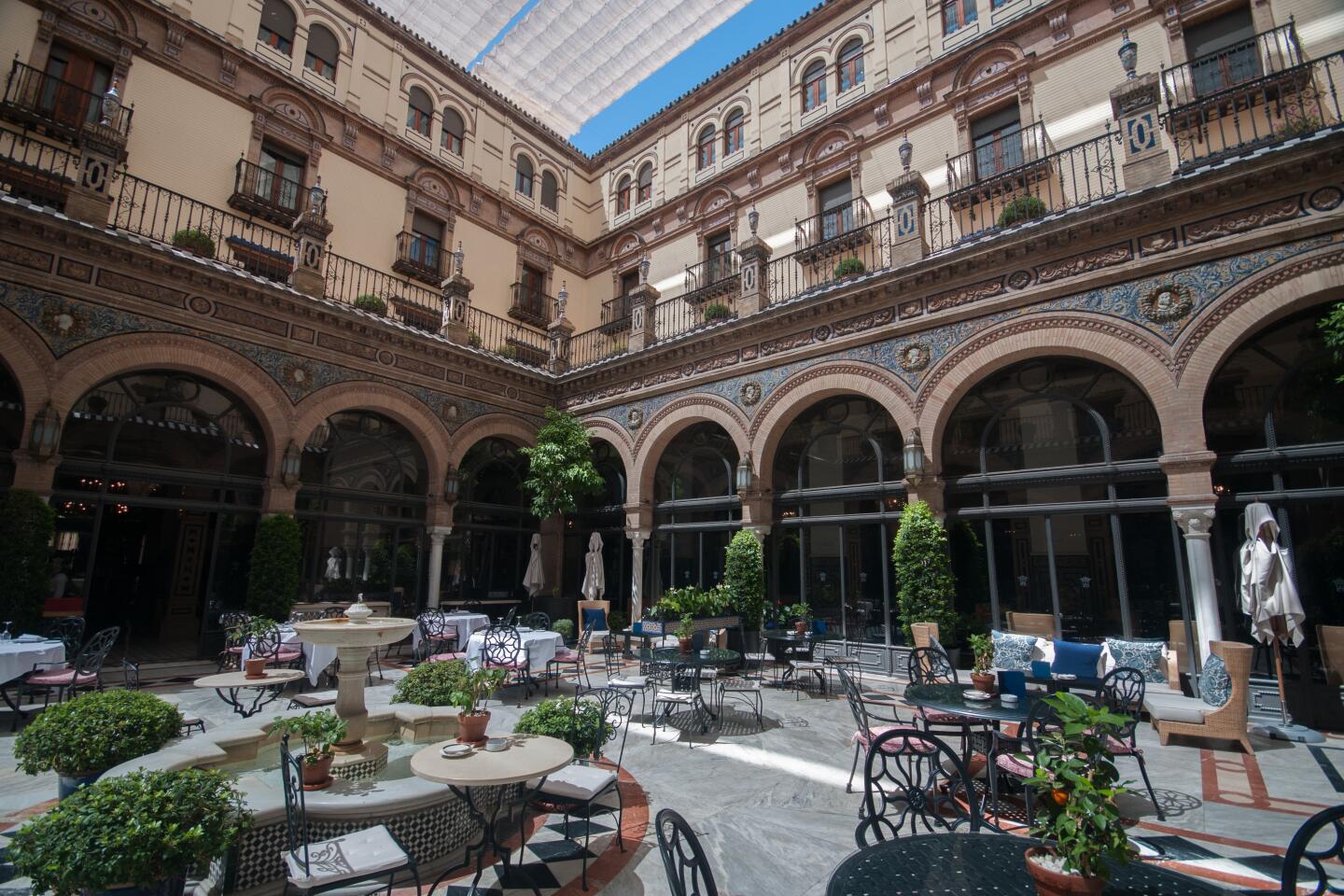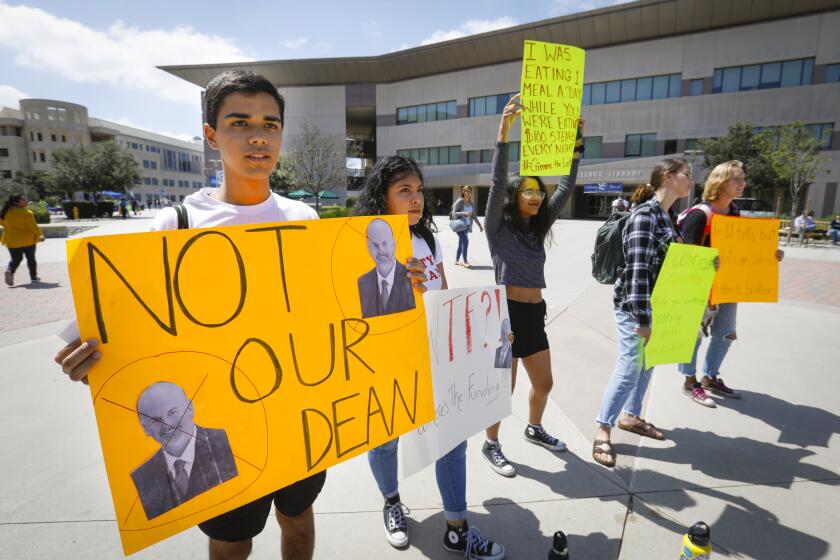Limousine services and lavish meals: Cal State San Marcos review of executive travel widens
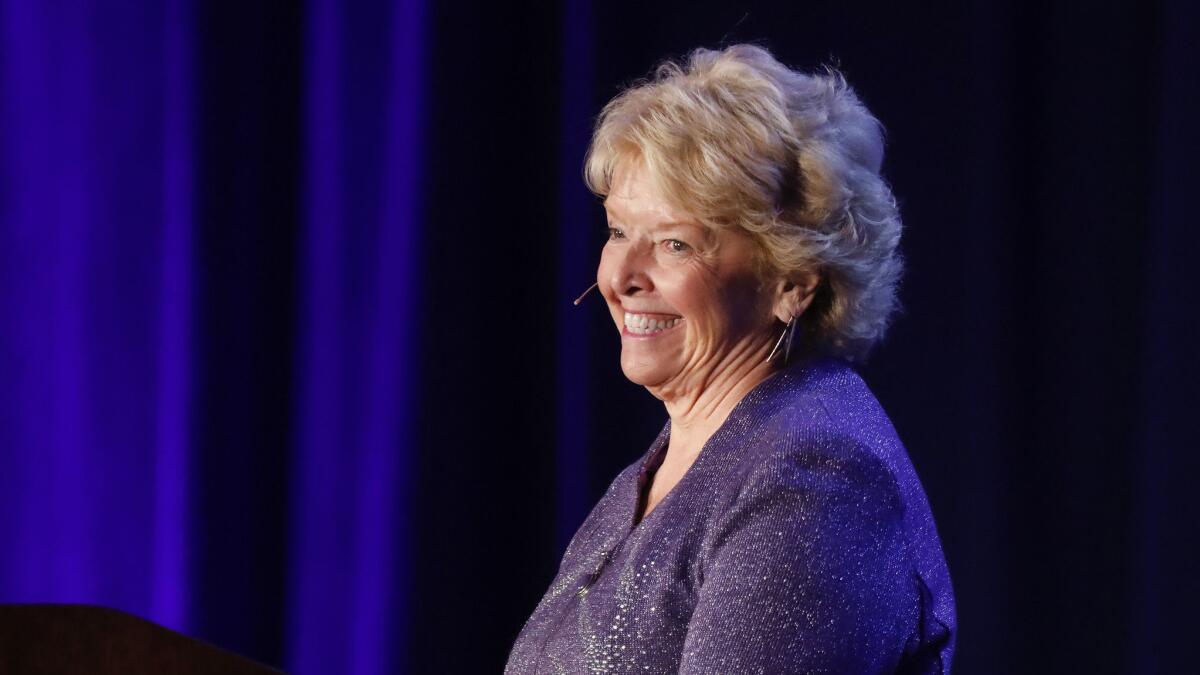
Former president, many others favored private drivers, fine dining
Michael Schroder, the dean who traveled first class, stayed at Ritz-Carlton hotels and bought a $110 Bruno-style bone-in filet was not the only one at Cal State San Marcos using state tax money to cover luxury expenses.
So were the people responsible for approving his expense reports.
Graham Oberem, former provost and most frequent signer of Schroder’s expense reports, stayed at a $639-a-night hotel in Spain in 2017 and paid $472 for Half Moon Limos to take him to and from Los Angeles International Airport for a recruiting trip to various countries in Europe in November 2018.
Karen Haynes, former president of the university, stayed in the same hotel in Spain for $762 a night. She accumulated more than $9,100 in charges for chauffeured transportation from September 2017 to June this year. She billed the school for rides from her home to the university and was chauffeured to Long Beach routinely, documents show.
The spending is reported in a new batch of business and travel expense reports received by The San Diego Union-Tribune in response to a request for additional public records after writing about Schroder’s spending last month.
University also paid for Roman holiday under guise of attending conference, records show
After the Union-Tribune began questioning the school about the latest expense documents, the new Cal State San Marcos president sent out an email to the campus community announcing that the university has launched a comprehensive review of travel expenditures across all divisions.
“We have already identified areas for improvement including: limits on travel expenditures related to the cost of hotels and air travel, the frequency of travel, cost of meals and reimbursement of alcohol; and improving documentation requirements,” President Ellen Neufeldt said in the email last week.
The review is in addition to an ongoing audit launched by the California State University Office of the Chancellor in July amid questions about spending by Schroder, who is on leave for undisclosed reasons.
The university pledged to release the findings on Schroder but offered no timetable as to when the audit might be completed. A spokeswoman would not say whether other officials are also on leave.
Schroder, Oberem and Haynes did not respond to the Union-Tribune’s calls and emails requesting comment.
Luxury on the job
Haynes, who retired in June after 15 years as university president, was paid $404,000 last year, according to Transparent California, an online database of public sector salaries.
The new batch of documents obtained this month by the newspaper show that Haynes and other senior university leaders spent more than $300,000 on travel that included upgraded airline tickets, fine dining and stays at international resorts that charge more than what the U.S. government allows for its employees, among other costs.
The school officials’ spending on lavish meals, limousines and luxury hotels went well beyond the $82,000 featured last month by The San Diego Union-Tribune, which examined two years of expense reports submitted by Schroder. The article noted that a food pantry on campus for needy students has a budget of about $80,000 per year.
Dean Michael Schroder is on leave and his travel spending is under investigation
According to expense records, Haynes and her companions ate foie gras, octopus, lamb and steak at a retreat at the Christy Hill bistro on Lake Tahoe in June 2018. The group of 10 bought five martinis, four glasses of wine and five bottles of wine for $383.
Haynes incurred $731 in costs for a chauffeured sedan ride to and from LAX for a trip to South Africa in 2018, to attend Family Week at Nelson Mandela University and develop international partnerships.
The ride was not a one-off for Haynes. Records show she used chauffeur services routinely to travel between her home in Vista, galas in San Diego, board meetings in Long Beach and other destinations.
Earlier this year, Haynes billed the school $372 for a chauffeured ride to and from the National Conflict Resolution Center’s Peacemaker Awards dinner in San Diego.
She charged $507 for a private driver to take her to and from the LEAD San Diego Visionary Awards banquet in San Diego, where she collected a lifetime achievement prize for being a catalyst for positive change.
The charge included extra wait time for the driver, to extend the festivities. (A notation on her expense report commented, “Totally understandable!”)
On another occasion, the school paid $656 for “transportation to and from the Chancellor’s office for the Board of Trustees meeting” on July 24, 2018, in Long Beach, records show. She incurred another $656 charge for transportation to and from a board meeting in Long Beach in March.
Cal State San Marcos spokeswoman Margaret Chantung said the school paid for the private rides to ensure Haynes’ personal safety. She declined to explain how Haynes’ safety was ensured by hiring chauffeurs, but she did say Haynes’ successor does not expect to use such services.
According to Chantung, hiring private drivers allowed Haynes to work while she traveled.
“She used this service primarily for long car rides (for example, to the Chancellor’s Office in Long Beach for Board of Trustees meetings) and used the time as additional desk time to conduct calls, write/ read emails and conduct document review/ preparation,” she wrote by email. “In addition, for evening events, car service was was often the preferred mode of transportation due to reliability and safety.”
The records also show, in some cases at least, that Cal State San Marcos officials were aware their spending was questionable.
For example, an expense report for Oberem’s travel to Seville, Spain, in 2017 showed five nights of lodging at the iconic Hotel Alfonso XIII at a cost of $639 per night. Oberem’s report included emails between Schroder, who was arranging lodging for Cal State San Marcos staff attending a conference there, and Haynes prior to the trip.
In the email, Schroder double-checked with Haynes about booking rooms at the expensive hotel, as opposed to switching to a less-expensive option. She responded by saying it was OK to exceed the $163 limit the U.S. State Department will pay for lodging in Seville.
“Mike, (I) understand about pricing and safety; seems easiest and not much more expensive to just stay where booked,” Haynes replied by email.
Haynes’ own expense reports for the trip to Spain showed she spent five nights at the Hotel Alfonso XIII at a nightly rate of $762.
Internal investigation
In a telephone interview earlier this month, Chantung said the latest travel records prompted Neufeldt, who took over as Cal State San Marcos president July 1, to open her own review of travel spending by the university.
“They are going to be looking at where folks have traveled over the past fiscal year and what the trends are so we can ensure looking forward that we are meeting the mission of the university,” the spokeswoman said.
The newly disclosed travel spending further outraged Cal State San Marcos students.
Lunchtime demonstration drew sparse but angry crowd
“These alarming new findings point to deep-seated corruption inside the highest ranks of the university administration,” said Eduardo Negron, a political science major who organized a campus protest last month in response to the initial report.
“Former President Karen Haynes and Vice President Graham Oberem, who conveniently retired just months before this scandal was uncovered, were knowingly misusing funds that were specifically designated for two areas where students often struggle the most — housing and food,” he said by email. “This poses serious concerns in the way the closed-door audit is being handled and makes it imperative for students to have a direct role in the investigation.”
University officials said they would invite students to participate in work groups regarding travel although the students would not take part in the official review. Chantung said the administration takes students’ concerns very seriously.
“There is a specific process called for when CSU Audit and Advisory Services performs an investigation,” she said.
Haney Hong, president and chief executive of the San Diego County Taxpayers Assn., said both Cal State San Marcos and the Chancellor’s Office should have processes in place to prevent excessive spending.
“This is deeply concerning, especially as higher education costs continue to climb for college students and the taxpayers who support them,” he said. “If the excess is rampant, we’ve got a culture problem — and clearly failing systems of audit and monitoring, which is what we should expect of our public agencies.”
$300,000 in new spending
The Union-Tribune requested the additional travel records from the university early last month, the day after the report on Schroder’s spending was published.
Cal State San Marcos subsequently released 425 separate files containing more than 1,200 pages of reimbursement records, hotel and meal receipts and other documents dating back to July 2017.
According to the records, 19 separate administrators spent $307,000 on travel over the past two-plus years. Among other cities, they went to Nashville, Washington D.C. and Long Beach, where the CSU system is based, as well as to far-flung destinations like Singapore, Casablanca and Lebanon.
Chantung said that if auditors find some spending was improper, there is a legal mechanism for recovering the funds.
“The university could seek restitution,” she said.
The latest batch of records show that Schroder surpassed the $82,000 in travel spending originally detailed by the Union-Tribune last month. He also bought over $16,000 worth of food and other expenses paid for by the CSUSM Corp., the university’s nonprofit arm.
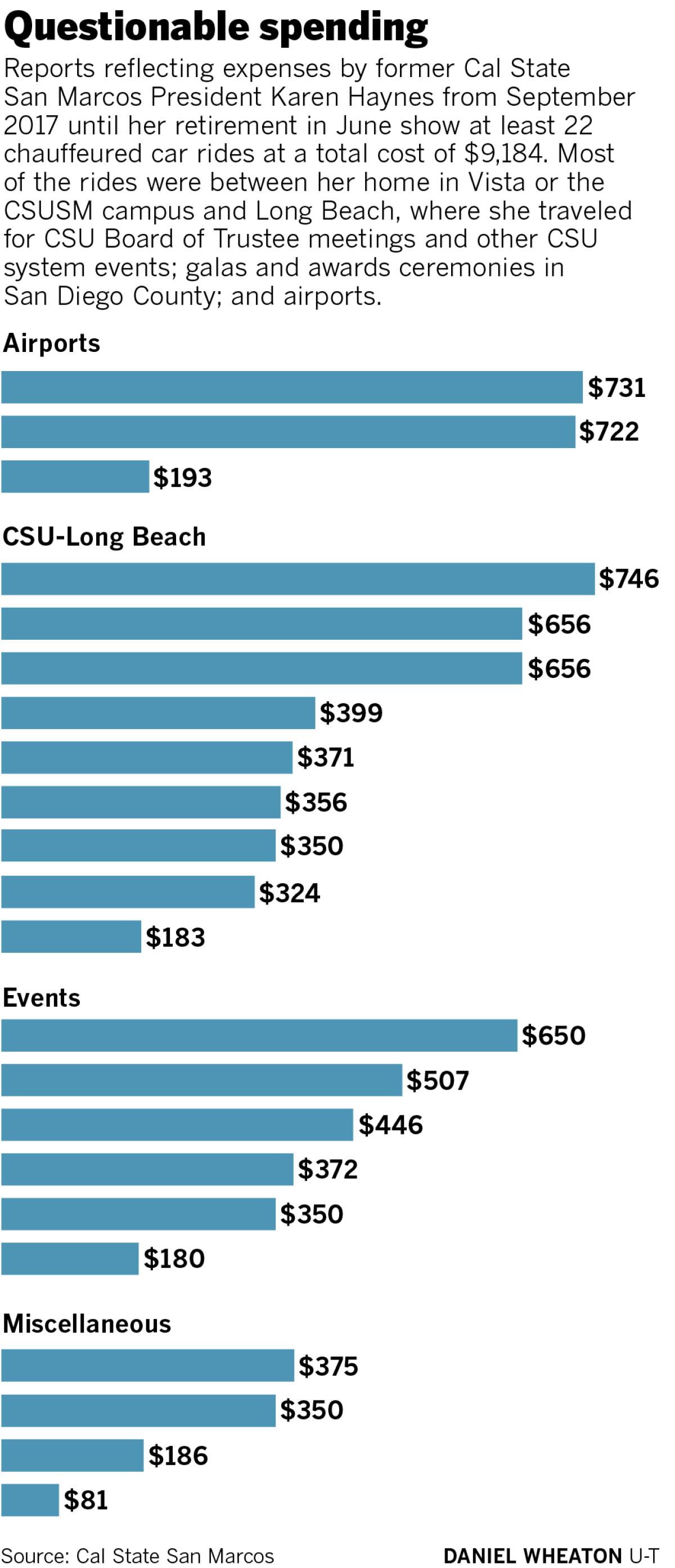
Schroder, who served on the CSUSM Corp. board of directors, spent some of the organization’s money on filet mignon, oysters and lobster buttered popcorn. Some of the dining charges were for meetings with Cal State San Marcos staff at local restaurants.
Schroder spent $390 at Vigilucci’s Seafood & Steakhouse in Carlsbad for dinner Dec. 11, 2018, with a vice president at National University, a private, nonprofit school in San Diego, to discuss “CoBA and MBA double degree” options. Their dinner included a double Oban single-malt Scotch whisky for $46, a $130 fish platter appetizer, a $49 steak and $72 bottle of wine.
Chantung said the nonprofit spending was permitted because it meets the mission of the charity, which is to promote the university. Among other revenue sources, the CSUSM Corp. is funded by bookstore profits, vending machine proceeds and managing university property.
“It’s appropriate and within policy to use those resources on certain types of hospitality and travel,” she said. “It is within policy to use non-state (university) resources.”
The CSUSM Corp. paid about $55,000 of the $307,000 identified in new travel and hospitality spending.
In her campus-wide email, Neufeldt said the school is “creating an internal audit function” and “updating travel and hospitality guides” to make the reimbursement process clearer. She also created “work groups” to identify policy improvements, such as adopting limits on airfare and hotel costs.
“In just three short months, you have all shown me how dedicated you are to our mission and you let me know how important it is that our dollars are spent thoughtfully and wisely,” she said. “I truly believe that what we do now builds a better future for our students, our employees and our region.”
The Cal State San Marcos president may already have adopted a more conservative spending practice for herself. Records show Neufeldt drove herself to Long Beach in July and August and didn’t even submit the 58-cent per mile reimbursement.
More to Read
Sign up for Essential California
The most important California stories and recommendations in your inbox every morning.
You may occasionally receive promotional content from the Los Angeles Times.
